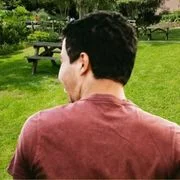

Hire The Best Medicinal Chemistry Tutor
Top Tutors, Top Grades. Without The Stress!
10,000+ Happy Students From Various Universities
Choose MEB. Choose Peace Of Mind!
How Much For Private 1:1 Tutoring & Hw Help?
Private 1:1 Tutors Cost $20 – 35 per hour* on average. HW Help cost depends mostly on the effort**.
Medicinal Chemistry Online Tutoring & Homework Help
What is Medicinal Chemistry?
Medicinal chemistry is an interdisciplinary science combining organic chemistry, biochemistry and pharmacology to design, synthesize and develop new drugs. It focuses on optimizing potency, selectivity, safety and pharmacokinetic properties, such as ADME (Absorption, Distribution, Metabolism, Excretion), to create effective therapies for human diseases.
Popular alternative names: pharmaceutical chemistry, drug design chemistry, pharmacochemistry.
Major topics/subjects in Medicinal Chemistry: - Drug design and discovery: crafting molecules like imatinib for targeted cancer therapy. - Structure–Activity Relationships (SAR): tweaking functional groups to boost efficacy. - Pharmacokinetics (PK): studying ADME to adjust dosing; for instance, modifying acetaminophen’s half-life. - Synthetic methods: using palladium-catalyzed couplings to build NSAIDs in lab scales. - Molecular modelling: virtual screening identifies COVID‑19 protease inhibitors before lab tests. - Biomolecular interactions: understanding how aspirin irreversibly inhibits COX enzymes.
Early roots trace to the 19th century with Friedrich Serturner’s isolation of morphine in 1805; this remarkable feat started teh tradition of isolating active compounds from plants. In 1897, Bayer chemist Felix Hoffmann synthesized aspirin, ushering in large‑scale drug production. Discovery of penicillin by Alexander Fleming in 1928 revolutionized antibiotic therapy. Rational drug design emerged mid‑20th century when Sir James Black developed propranolol, the first beta‑blocker, using receptor theories. The 1970s saw combinatorial chemistry accelerate library creation. Computational methods advanced further in the 1990s, enabling virtual screening and QSAR (Quantitative Structure-Activity Relationship) models that remain vital today.
How can MEB help you with Medicinal Chemistry?
Do you want to learn Medicinal Chemistry? MEB is here to help! Our tutors work with you one-on-one online. We are available 24 hours a day, 7 days a week. You can get help with:
- Homework - Assignments - Lab reports - Live tests - Projects - Essays - Long research papers
We prefer to chat on WhatsApp. If you do not use WhatsApp, please email us at meb@myengineeringbuddy.com.
Many of our students come from the USA, Canada, the UK, Gulf countries, Europe, and Australia. They ask for help because:
- Medicinal Chemistry can be hard to understand - There are too many assignments - Some questions are confusing - They have health or personal reasons - They work part‑time - They miss some classes - They find it hard to keep up with the tutor’s pace
If you are a parent and your ward is having trouble with Medicinal Chemistry, contact us today. Our tutors will help your ward do well on exams and homework. They will thank you!
We also offer help in more than 1,000 other subjects. Our tutors and experts make learning easier and help students succeed. Remember, it is okay to ask for help. Our tutors are here to make school less stressful.
DISCLAIMER: OUR SERVICES AIM TO PROVIDE PERSONALIZED ACADEMIC GUIDANCE, HELPING STUDENTS UNDERSTAND CONCEPTS AND IMPROVE SKILLS. MATERIALS PROVIDED ARE FOR REFERENCE AND LEARNING PURPOSES ONLY. MISUSING THEM FOR ACADEMIC DISHONESTY OR VIOLATIONS OF INTEGRITY POLICIES IS STRONGLY DISCOURAGED. READ OUR HONOR CODE AND ACADEMIC INTEGRITY POLICY TO CURB DISHONEST BEHAVIOUR.
What is so special about Medicinal Chemistry?
Medicinal Chemistry stands out because it mixes chemistry and biology to create new medicines. It studies how drugs work in the body, how they are made, and how they can be safer and more effective. By focusing on molecule design and testing, this field bridges lab research and medical use, making it unique among science subjects in biomedical engineering.
Compared to other subjects, Medicinal Chemistry offers hands‑on lab work and direct impact on drug development, which can lead to rewarding careers. However, it demands strong skills in both chemistry and biology, long hours in the lab, and a deep understanding of complex reactions. Unlike general chemistry or pharmacology, its scope is narrower but more focused on creating real-life treatments.
What are the career opportunities in Medicinal Chemistry?
Master’s and Ph.D. programs in Medicinal Chemistry build on basic chemistry and biology. Students can join specialized courses in drug design, pharmacology, and chemoinformatics. Many universities now offer hands‑on training in computer‑aided drug discovery and regulatory affairs.
Career options span big pharma, biotech startups, and government labs. Recent trends include roles in AI‑driven drug discovery and green chemistry. Graduates also find work in clinical trial management and intellectual property consulting for new medicines.
Common job titles are Medicinal Chemist, Process Chemist, and Computational Chemist. Medicinal Chemists design and test new compounds. Process Chemists scale up production safely. Computational Chemists use software to predict how drugs will interact in the body.
We study Medicinal Chemistry to learn how to create safe, effective medicines. It has real‑world uses like developing antiviral drugs, personalized treatments, and vaccines. Advantages include helping people live healthier lives and contributing to breakthroughs in treating diseases.
How to learn Medicinal Chemistry?
Start by building a strong base in organic chemistry and biochemistry. Break Medicinal Chemistry into small topics like drug types, molecular structures, and reaction mechanisms. Set up a weekly study plan with clear goals—read one chapter, watch one video, and solve practice problems. Use flashcards for key terms and draw structures by hand. Regularly review older material to keep it fresh. Work on example questions to test your understanding and spot gaps.
Medicinal Chemistry can feel tough at first because it mixes chemistry with biology. If you focus on one topic at a time and link concepts to real drugs, it becomes easier. Practice drawing molecules and explaining how drugs work in simple words. Over time, patterns emerge and you’ll see common reactions and design principles. Consistent effort and practice make what seems hard more manageable.
You can learn Medicinal Chemistry on your own using books, videos, and problem sets, especially if you’re disciplined. But a tutor speeds up progress by clearing doubts fast, guiding your study plan, and keeping you on track. If you struggle with a topic or need custom examples, tutoring gives you instant feedback and support that you can’t get from books alone.
MEB offers one‑on‑one online tutoring 24/7 by experts in Medicinal Chemistry. We create a study plan just for you, explain tricky reactions step by step, and give practice quizzes. We also help with assignments, lab reports, and exam strategies. Our affordable rates and flexible hours mean you can get help whenever you need it, even late at night before a test.
Most students with some chemistry background need about 3–6 months of regular study—1–2 hours a day—to feel confident in Medicinal Chemistry. If you’re new to chemistry, add a month or two for basics. Before exams, increase to 2–3 hours daily, focus on past papers, and review flashcards. Adjust based on your pace and understanding.
For videos, try YouTube channels like Professor Dave Explains, Khan Academy Medicine and Medicinal Chemistry with Abdul Nassar. Visit websites such as Coursera, PubChem, and the American Chemical Society for articles and tutorials. Key textbooks include Foye’s Principles of Medicinal Chemistry, Wilson and Gisvold’s Textbook of Organic Medicinal and Pharmaceutical Chemistry, and Goodman & Gilman’s The Pharmacological Basis of Therapeutics. These resources cover theory, drug design, and case studies used by most students around the world.
College students, parents, tutors from USA, Canada, UK, Gulf etc. If you need a helping hand—online 1:1 24/7 tutoring or assignment support—our tutors at MEB can help at an affordable fee.






















